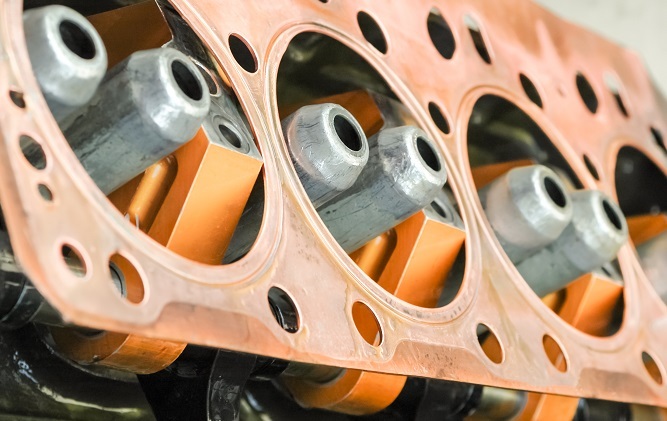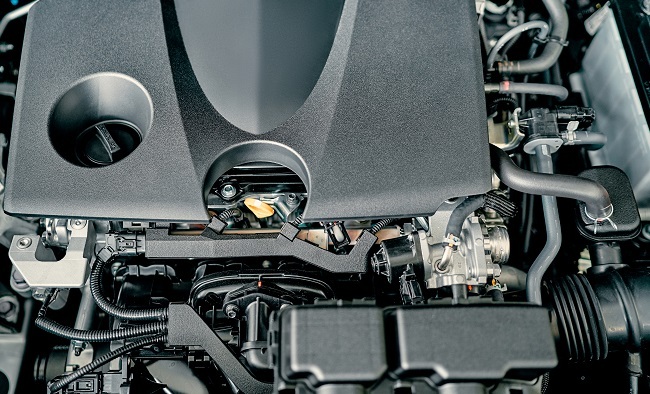
 Data Structure
Data Structure Networking
Networking RDBMS
RDBMS Operating System
Operating System Java
Java MS Excel
MS Excel iOS
iOS HTML
HTML CSS
CSS Android
Android Python
Python C Programming
C Programming C++
C++ C#
C# MongoDB
MongoDB MySQL
MySQL Javascript
Javascript PHP
PHP
- Selected Reading
- UPSC IAS Exams Notes
- Developer's Best Practices
- Questions and Answers
- Effective Resume Writing
- HR Interview Questions
- Computer Glossary
- Who is Who
What is the full form of EFI?
Definition of EFI
Electronic fuel Injection (EFI) refers to evaluating this kind of engine to carbureted combustion engines, it gives better fuel efficiency and overall performance.

The system utilises sensors that determine several engine capabilities and precisely change the fuel shipping, increasing control over the process of combustion.
Working of EFI
To summarise the EFI (Electronic Fuel Injection) works, consider the stages below
Engine sensors have the ability to monitor a wide range of factors, including throttle position, air temperature, and the speed of the engine.
The Engine Control Unit (ECU), which receives sensor data and analyses data, determines the appropriate fuel quantity and timings.
An accurate amount of fuel is immediately injected into the engine's combustion chamber under the supervision of the Engine Control Unit (ECU).
The spark plug ignites both air and fuel combinations ignited, and the combustion that results drives the combustion chamber.
In order to maximise fuel performance and efficiency, the ECU continually evaluates and changes the fuel delivery in accordance with the varying engine terms.
Advantages of EFI
The following are some advantages to using an EFI (Electronic Fuel Injection) engine
Increased fuel economy Compared to carbureted engines, EFI systems may provide more precise control over the fuel supply and demand.
Increased Efficiency EFI systems have the ability to change the air-fuel combination depending on the needs of the engine, resulting in more power, greater reliability functioning, as well as faster acceleration.
Reduced emissions EFI systems can reduce emissions by decreasing the amounts of harmful substances and by more effectively regulating the engine's combustion process.
Improvement of Cold Beginning EFI systems have the ability to regulate the amount of fuel flow based on the current temperature of operation of the engine, which may improve cold beginning efficiency.
More Trustworthy EFI systems are often more trustworthy than carbureted engines because they need less maintenance and are less susceptible to fuel system failures.
Adaptability EFI systems are becoming a more popular option for a variety of applications, including as cars, motorbikes, and boats. They can be easily adapted to many different engine designs.
Disadvantages of EFI
EFI (Electronic Fuel Injection) provides many advantages, however there are also some possible Disadvantages such as
Higher Cost Traditional carbureted engines tend to be less complex as well as more expensive than EFI systems, which can raise the cost of the vehicle or engine at the initial position.

Complex Maintenance To maintain and repair EFI systems, specialised diagnostic equipment and experienced technicians are needed, which might raise maintenance costs.
Electronic Failure EFI systems' electronic components are susceptible to failure and might require to be replaced, which may be expensive and time- consuming.
Reduced User Serviceability Compared to carbureted engines, EFI systems are less user-serviceable because the electronic components need specialised skills and equipment for troubleshooting and repair.
Electrical Interference Exposure The performance of electronic components in EFI systems may be affected by electromagnetic radiation from other systems of electricity.
Only limited aftermarket support EFI systems may have limited aftermarket tuning and modification opportunities than carbureted engines since they are more complex and demand for specialised equipment and knowledge.
Conclusion
In conclusion, current fuel delivery systems like EFI (Electronic Fuel Injection) offer greater fuel consumption, better performance, lower emissions, and increased dependability compared to carbureted engines. However, there may be a few disadvantages, such as increased cost, costly maintenance, electronic failure, reduced user serviceability, susceptibility to electrical interference, and limited aftermarket support.
FAQs
Q1. Can older vehicles be retrofitted with EFI?
Ans: Yes, EFI may be applied to older automobiles with a few engine management and fuel system reworks.
Q2. Does EFI use more fuel than carburetion?
Ans: Yes, because EFI offers more exact control over the fuel delivery to the engine, it can be more fuel-efficient than carburetion.
Q3. How does EFI perform in cold environments?
Ans: In cold environments, EFI may adjust the delivery of fuel depending on the engine's temperature to improve cold starting efficiency.

